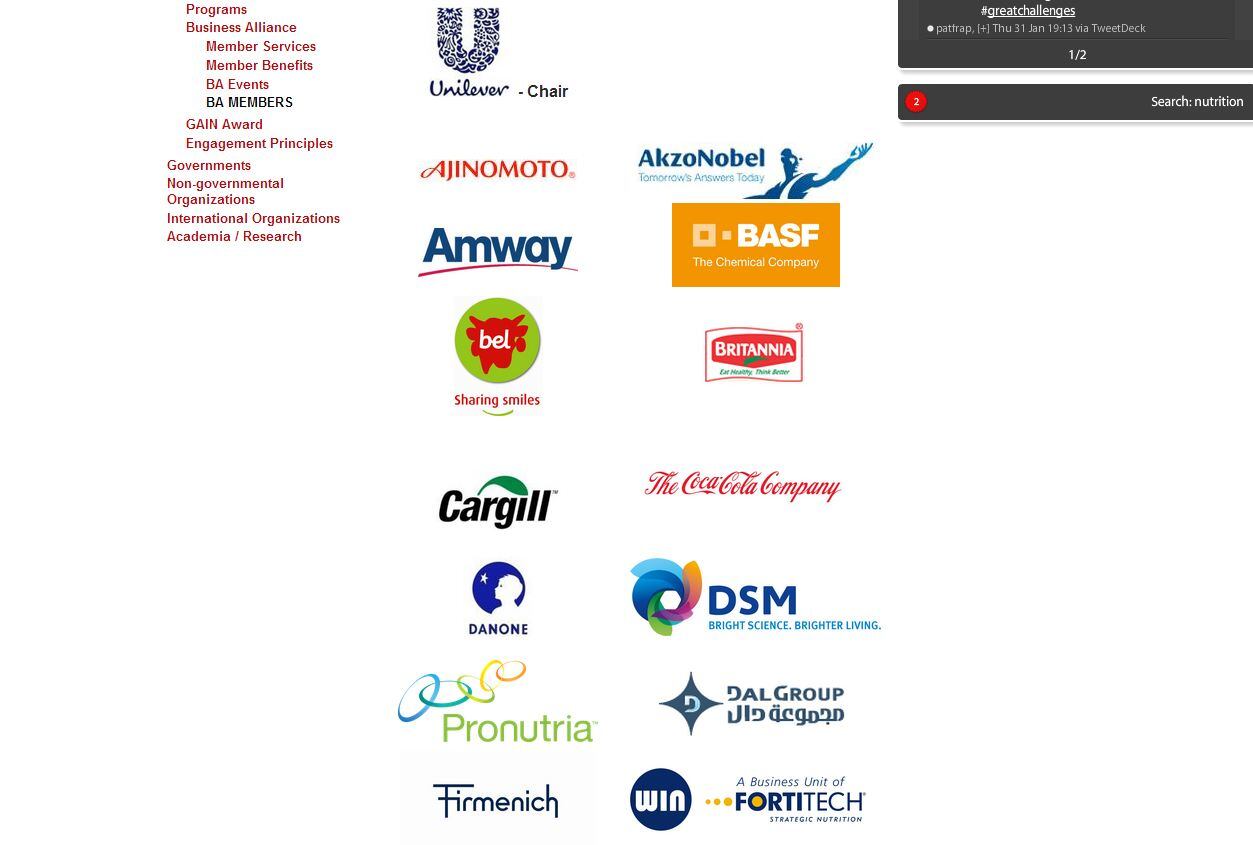At a meeting of its Executive Board it said it was postponing granting the status to GAIN (the Global Alliance for Improved Nutrition) until it could find out more about, “the nature and extent of the Alliance’s links with the global food industry, and the position of the Alliance with regard to its support and advocacy of WHO’s nutrition policies, including infant feeding and marketing of complementary foods."
While acknowledging the effectiveness of "well-managed" micronutrient programmes, the International Baby Food Action Network (IBFAN) and others said GAIN also lobbied on behalf of infant formula companies to ease marketing restrictions in developing countries.
Recent activity in Kenya was cited, where GAIN campaigned against government proposals to ban marketing on certain infant foods.
UK-based Patti Rundall, OBE, co-chair of IBFAN's Global Council and policy director at IBFAN member, Baby Milk Action (BMA), said GAIN had backed the use of health claims on follow-on formulas and baby foods at meetings of global food standards body – Codex Alimentarius.
Such claims are barred or restricted in many parts of the world as they are seen as undermining breastfeeding mothers.

“We don’t deny that some NGOs do good work in some areas with micronutrient programmes, but in this area GAIN are not what they appear to be – what role does an NGO have lobbying to open up markets for large food companies? They are a brief case NGO,” Rundall said.
BMA called 'briefcase NGOs' those Public Private Partnership Partnerships (PPPs), "that are often front organisations for businesses."
Danone, Coca-Cola, Pepsi-Co, GlaxoSmithKline and Unilever along with ingredients suppliers like DSM and BASF are members of GAIN.
The issue has thrown light on the WHO's own conflicts of interest policies. GAIN had contributed financially to WHO programmes.
"The Committee noted that the Alliance provided some funding to WHO. In the view of the Committee, great care should be taken in considering relations with organizations that fund WHO. Furthermore, the Committee noted that at its current session, the Executive Board would be discussing a report on key issues for the development of a policy on engagement with non-governmental organisations."
GAIN said it was preparing a response to the allegations at the time of publication.
